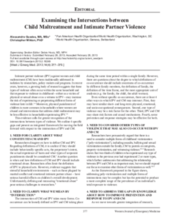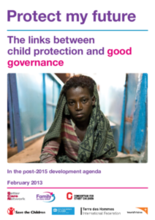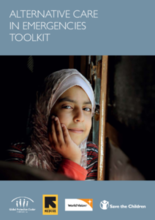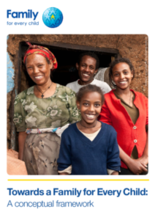Displaying 3721 - 3730 of 4420
In this editorial, the authors outline four specific gaps in evidence on the connections between intimate partner violence (IPV) and child maltreatment (CM) and present an integrated framework for moving the field forward with respect to the intersection of IPV and CM.
The aim of the article is to compile inquiries into abuse and neglect in out-of-home care that have been conducted worldwide in order to frame the historical context in which these inquiries and truth commissions were set up.
To consider the appropriateness of baby hatches, this article presents and examines the validity of each major objection to establishing baby hatches.
FairStart Training is a free 15 step online program developed by a child psychologists in Denmark, in collaboration with a team of childcare professionals, with support from the European Commission. It is a development program that aims to improve the professional care giving skills of those working with young people in public care (focused on children aged 0-3) through daily practices and organizational development.
This paper is part of an inter-agency series on the links between child protection and major development goals. The report focuses on the links between child protection and good governance as they relate to the post-2015 Millennium Development Goals development agenda.
The Alternative Care in Emergencies Toolkit is designed to facilitate interagency planning and implementation of alternative care and related services for children separated from or unable to live with their families during and after an emergency.
This study aims to determine the prevalence of maltreatment experienced by institutionalized children prior to their admission to Charitable Children's Institutions (orphanages) in western Kenya, and to describe their socio-demographic characteristics, reasons for admission, and the factors associated with prior experiences of maltreatment.
The Psychological First Aid Training Manual for Child Practitioners (PFA) was developed by Save the Children Denmark for the Child Protection Initiative, to facilitate training in psychological first aid with a focus on children.
This document provides a conceptual framework for Family for Every Child, a global network of national civil society organisations working to mobilise knowledge, skills and resources to build a world where every child grows up in a permanent, safe and caring family, and to provide quality alternative care where needed.
This guide is for people who work with children and young people in places of alternative care. It is intended to assist you in understanding and supporting the rights of children you work with.





